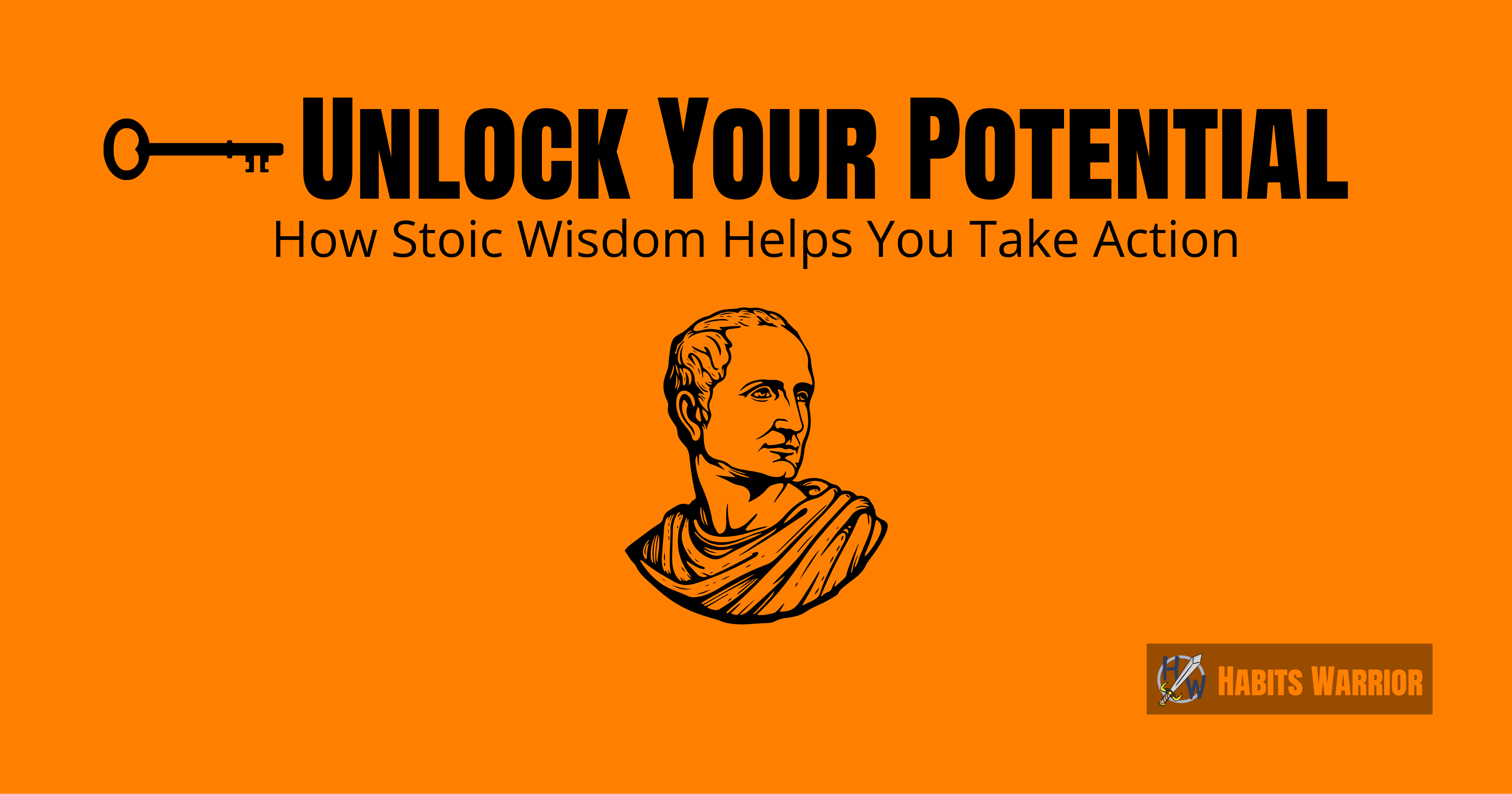
Unlock Your Potential: How Stoic Wisdom Can Help You Take Action and Achieve More
In a world filled with distractions and endless to-do lists, it's easy to feel overwhelmed and stuck. We dream of being better, achieving more, and living a more fulfilling life, but often, the biggest hurdle is simply starting. What if an ancient philosophy held timeless keys to unlocking our potential and galvanizing us into action? Enter Stoicism – a practical philosophy for the modern go-getter.
The Stoic Call to Action: Focus on What You Can Control
Stoicism, a school of philosophy founded in Athens by Zeno of Citium in the early 3rd century BC, isn't about suppressing emotions or enduring pain with a stiff upper lip. At its core, it's about understanding the difference between what we can control and what we cannot, and then focusing our energy squarely on the former.
- Epictetus, a prominent Stoic philosopher, taught in his Enchiridion (Handbook): "Some things are in our control and others not. Things in our control are opinion, pursuit, desire, aversion, and, in a word, whatever are our own actions. Things not in our control are body, property, reputation, command, and, in one word, whatever are not our own actions." (Enchiridion, 1.1)
When we fixate on outcomes we can't dictate or the opinions of others, we breed anxiety and inaction. But when we shift our focus to our own efforts, choices, and responses, we empower ourselves to act. The Stoic approach encourages us not to fear failure, as "failure" is often an external outcome. The true "success" lies in making the virtuous effort.
The Power of Starting: "Well begun is half done."
Procrastination is a common enemy of progress. We wait for the "perfect" moment, more information, or a surge of motivation. Stoicism reminds us that action itself often generates momentum and clarity.
- Seneca, another key Stoic figure, often wrote about the importance of making use of our time and not delaying. While the exact phrase "Well begun is half done" is often attributed to Aristotle, its spirit resonates deeply with Stoic principles of proactive engagement with life. Seneca, in his Letters from a Stoic, urges us to seize the present: "Putting things off is the biggest waste of life: it snatches away each day as it comes, and denies us the present by promising the future." (Letter 1)
Starting, no matter how small the first step, is a commitment to the present and an assertion of your agency. That first action breaks inertia and often illuminates the next steps on your path.
Taking Action: Practical Stoic Principles for a Better You
Stoicism isn't just theory; it's a practical guide to living. Here’s how you can apply its wisdom to start taking meaningful action:
- Define Your Intentions Clearly: What do you want to achieve? Be specific. A clear intention, focused on your actions (e.g., "I will dedicate one hour to writing my proposal" rather than "I will get the contract"), aligns with the Stoic emphasis on controlling your efforts.
- Break Down Large Tasks: Overwhelm leads to inaction. As Marcus Aurelius wrote in his Meditations, "Assemble your life action by action." (Meditations, 8.32 - Paraphrased for context). Break your goals into manageable steps. Focus on completing the immediate task at hand.
- Practice "Premeditatio Malorum" (Negative Visualization): This isn't about being pessimistic, but realistic. Briefly consider potential obstacles or what could go wrong. This prepares you to face challenges without being derailed, reinforcing your commitment to your chosen actions rather than being surprised by setbacks.
- Focus on the Process, Not Just the Outcome: While goals are important, Stoicism teaches us to find value in the work itself. Did you act virtuously? Did you give your best effort? These are within your control.
- Review Your Day: Seneca recommended a daily review: "When the light has been removed and my wife has fallen silent, aware of this habit that’s now mine, I examine my entire day and go back over what I’ve done and said, hiding nothing from myself, passing nothing by." (On Anger, 3.36). This reflection helps you learn, adjust, and stay committed to taking action aligned with your values.
Your Journey Starts Now
The path to becoming better and achieving your goals isn't about grand, instantaneous transformations. It's about the consistent application of sound principles and the courage to take that first step, and then the next. Stoicism offers a robust framework for cultivating the mindset needed for sustained action and resilience.
Stop waiting. Start doing. Your potential is waiting to be unleashed.
Sources:
- Epictetus. Enchiridion. (Various translations available. The quote is a standard rendition of section 1.1).
- Seneca, Lucius Annaeus. Epistulae Morales ad Lucilium (Letters from a Stoic). (Quote from Letter 1).
- Seneca, Lucius Annaeus. De Ira (On Anger). (Quote from Book 3, Chapter 36).
- Aurelius, Marcus. Meditations. (Various translations available. Reference to Book 8, section 32 is a conceptual one regarding taking things piece by piece).